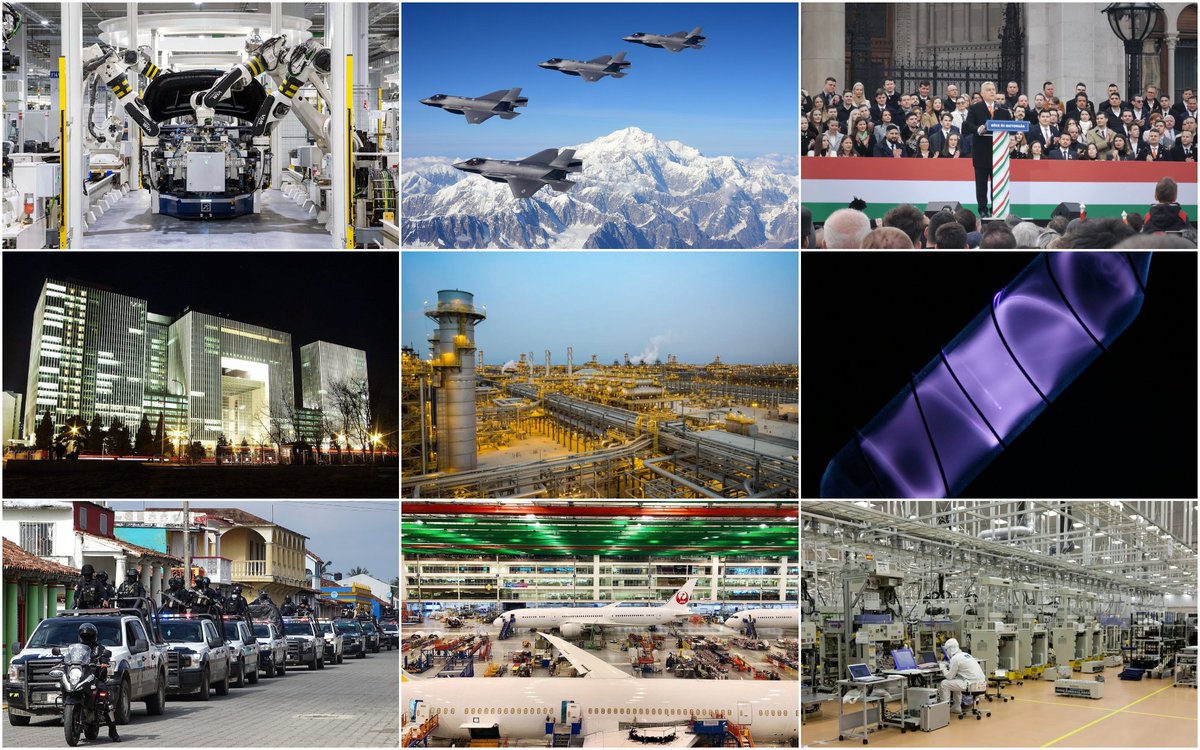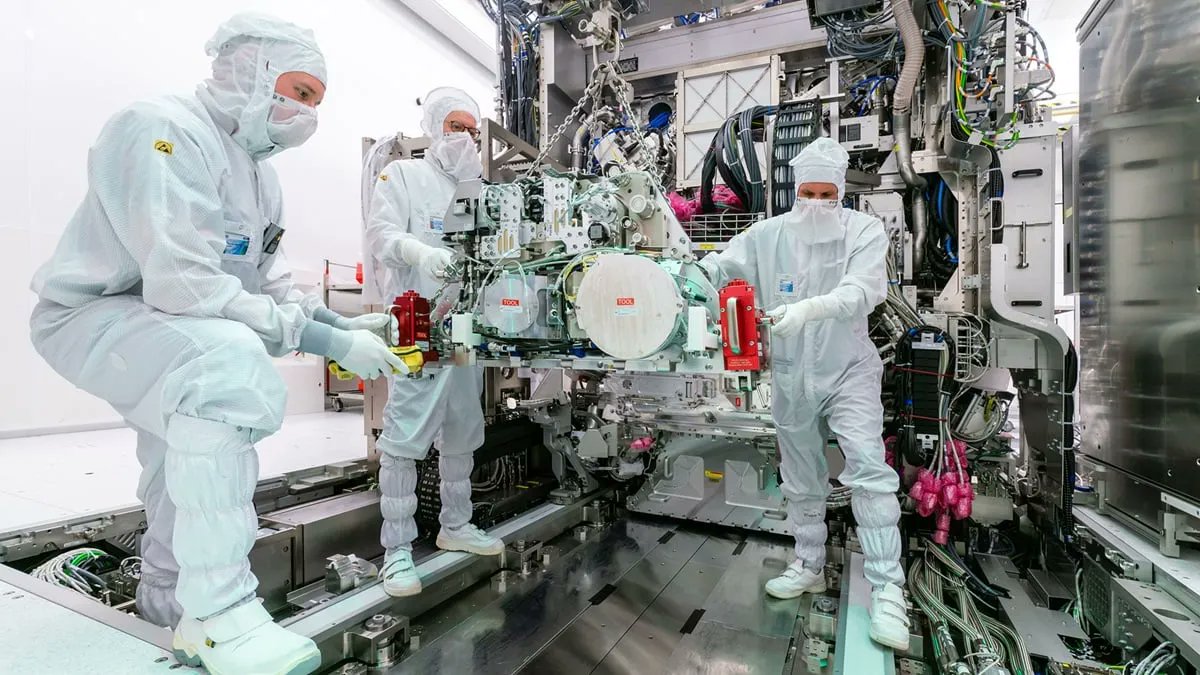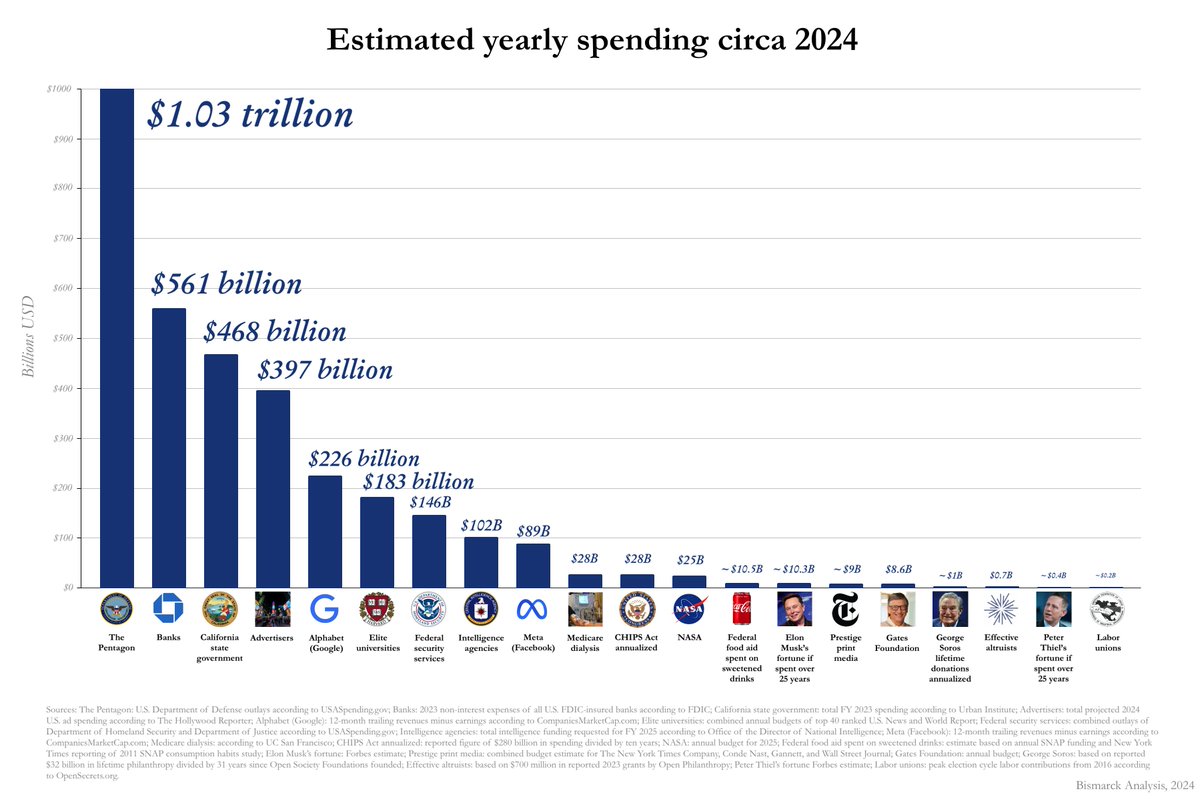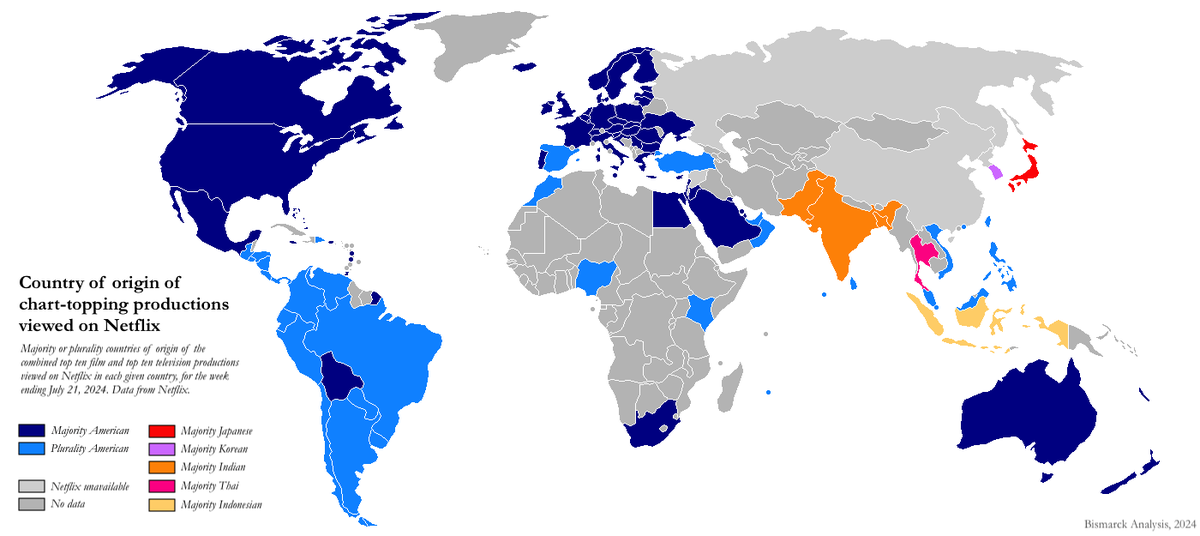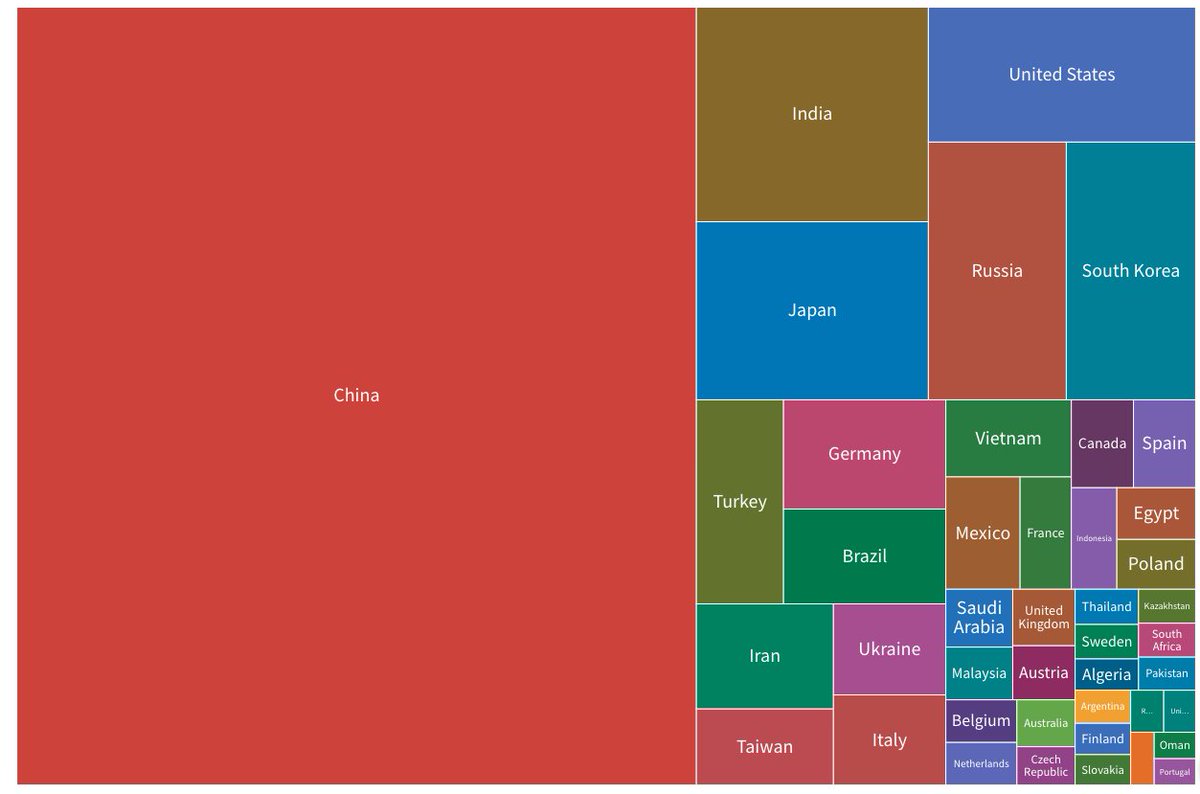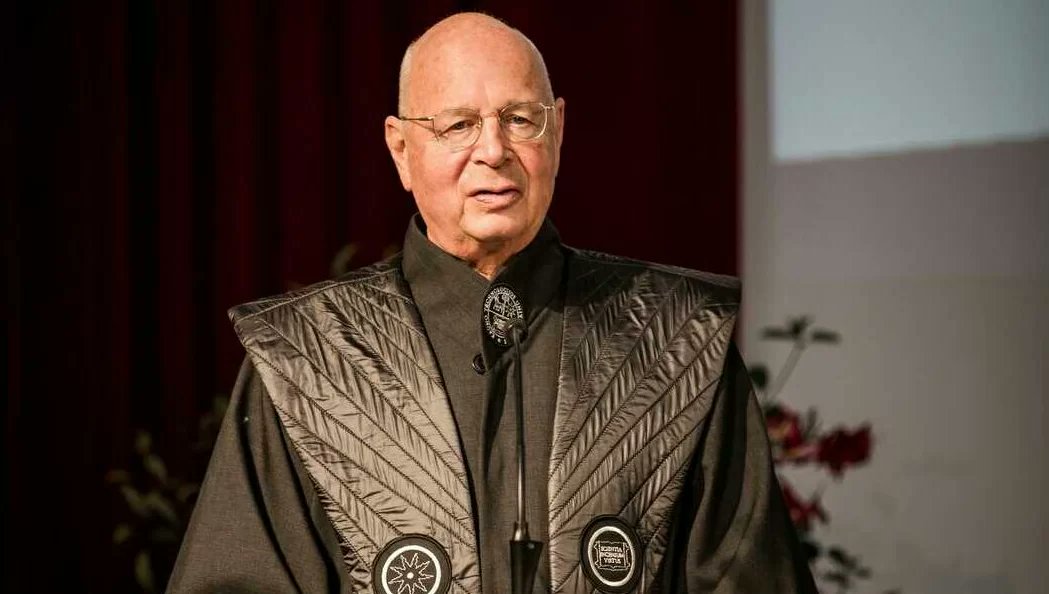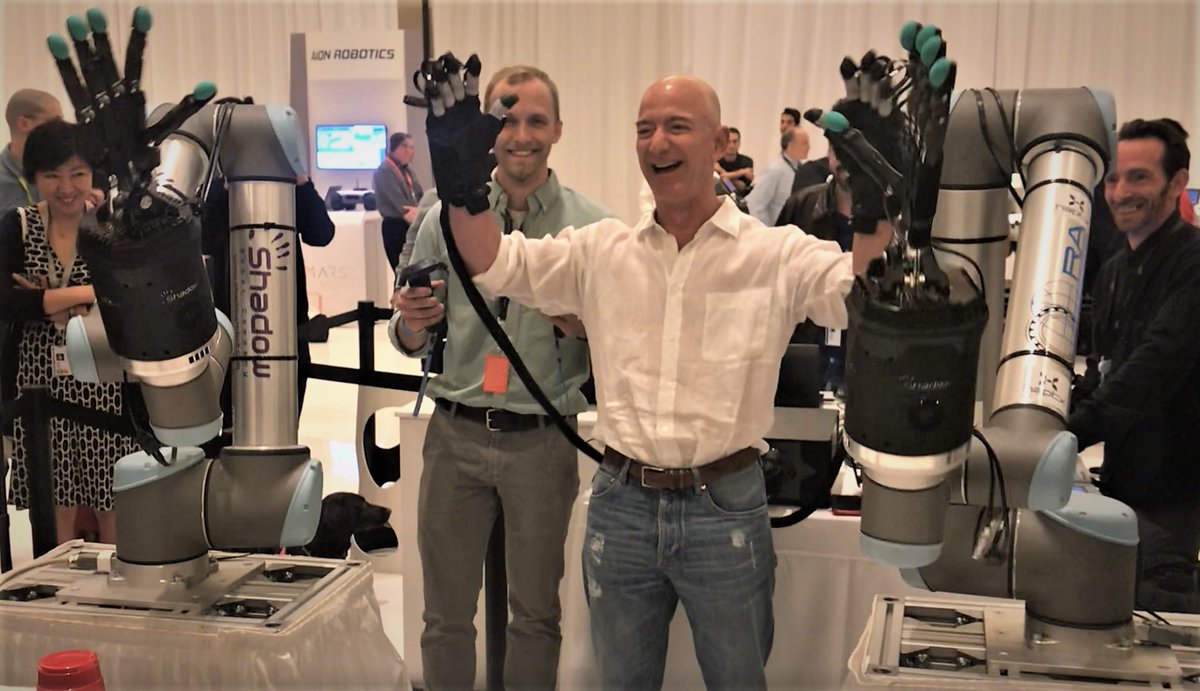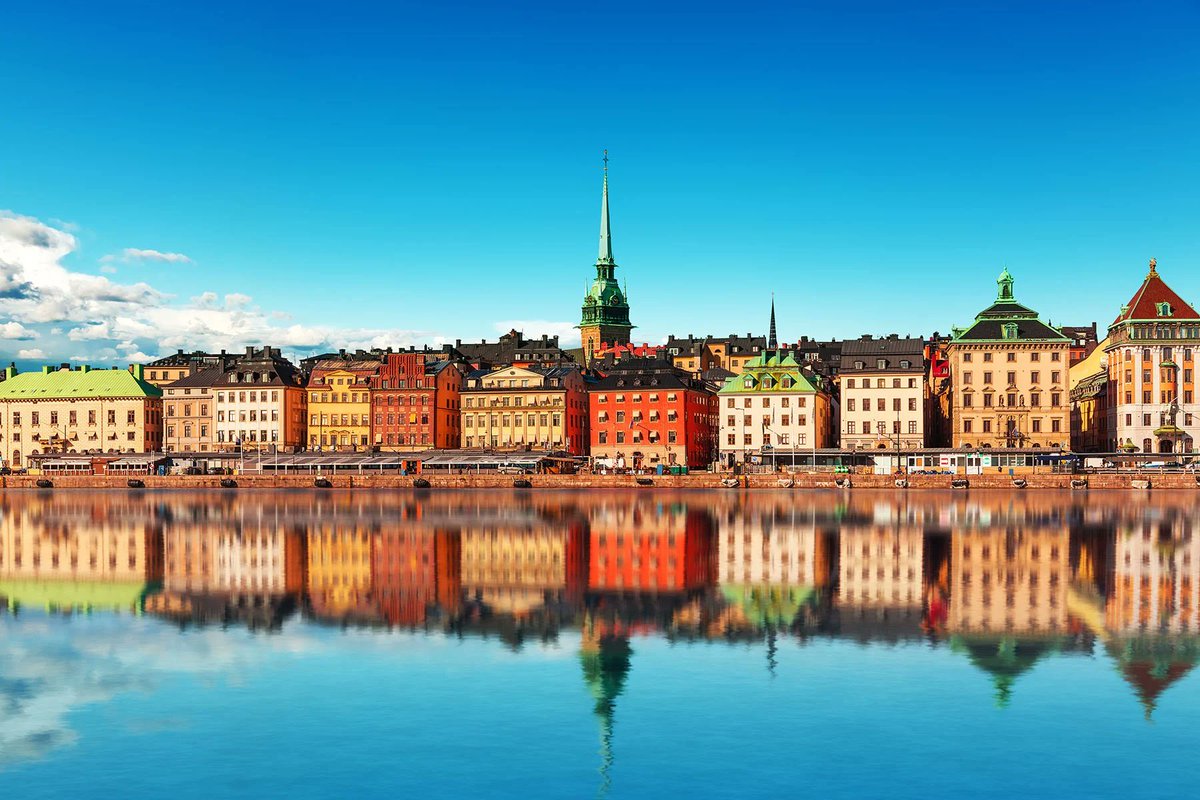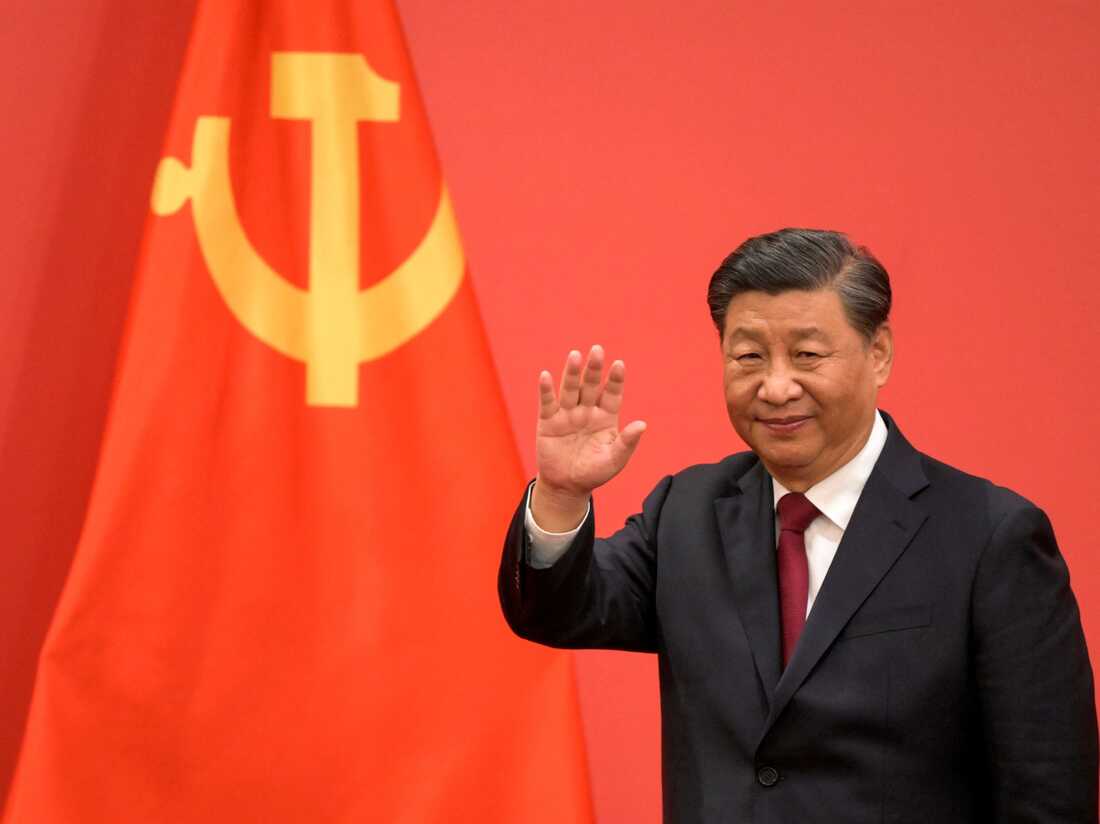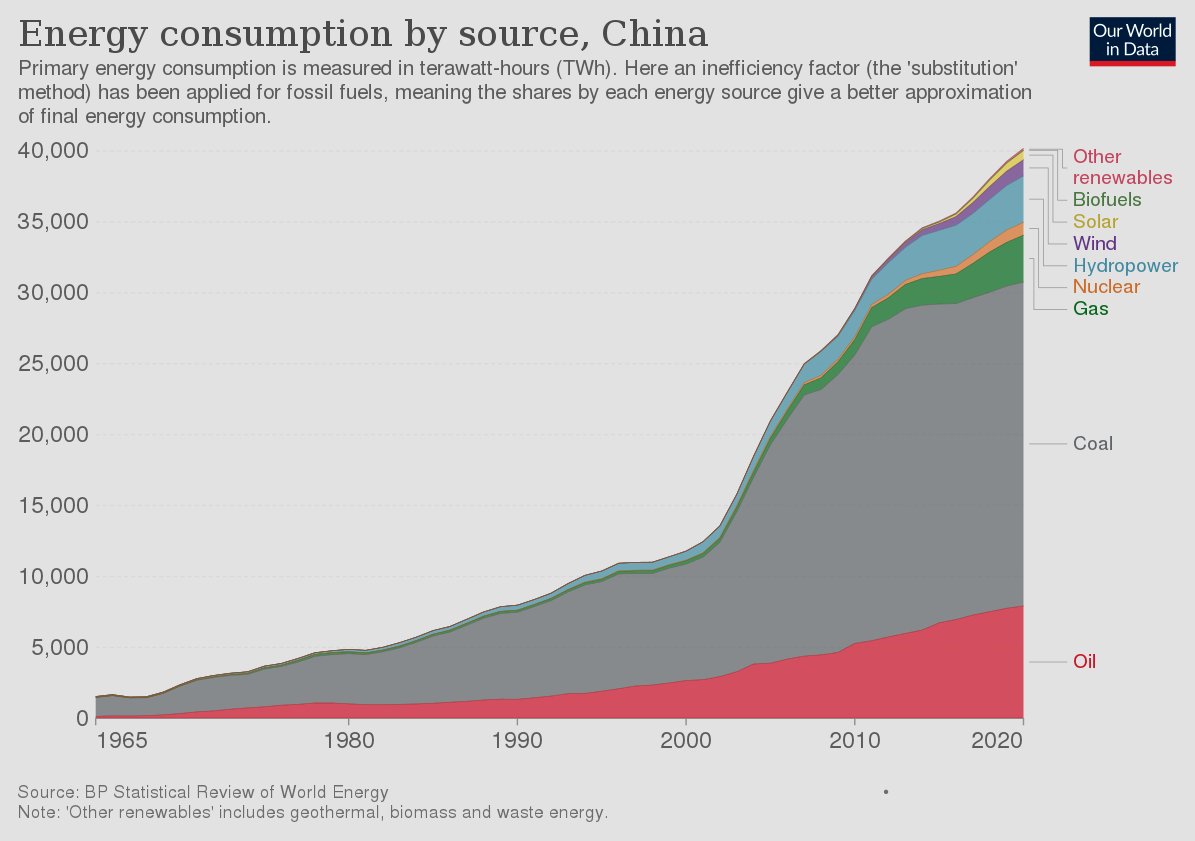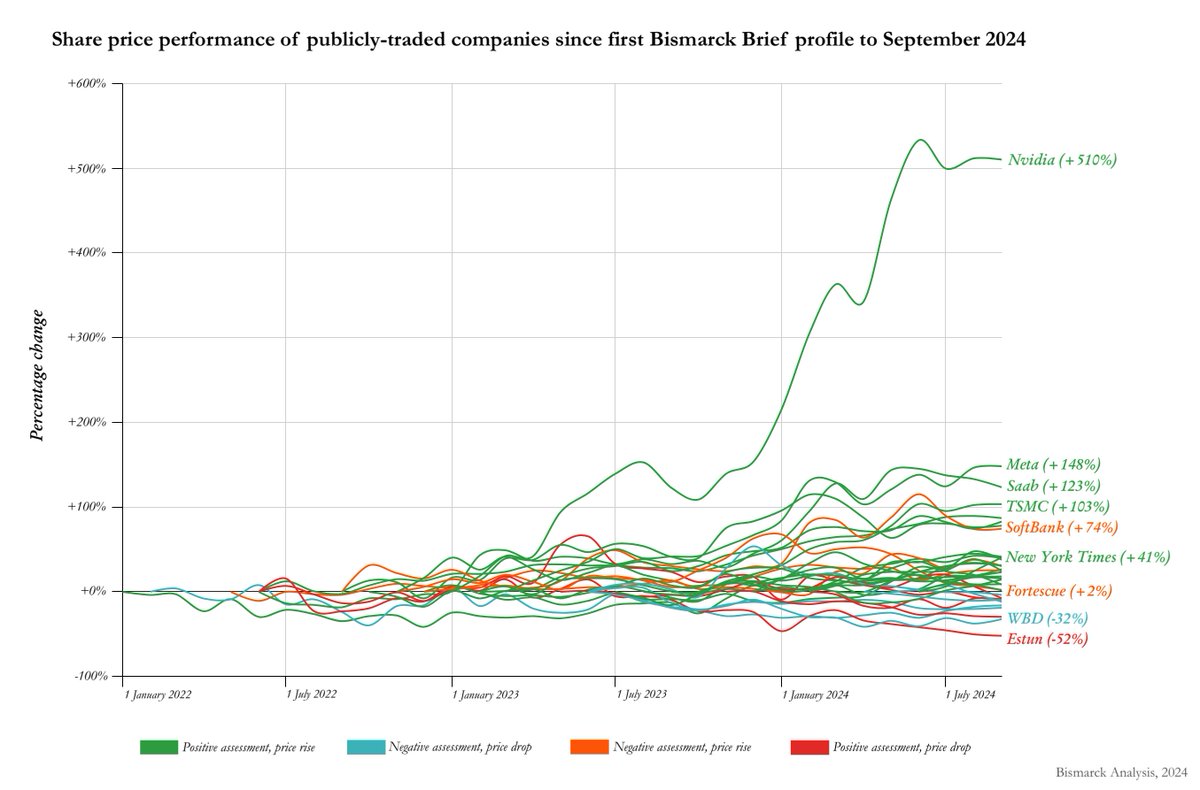
Bismarck Analysis
@bismarckanlys
Followers
15K
Following
4K
Media
167
Statuses
2K
We help companies, governments, philanthropists, and investors in their vital role of advancing civilization. Since 2017. Founded by @SamoBurja.
San Francisco, CA
Joined March 2022
#1. The wealthiest people in the world are not motivated by money. They are motivated by idiosyncratic ideological, personal, and prestige goals. Often, they simply want to be the most powerful and important person in a field. As a side effect, they become rich.
34
46
353
Steel is the alloy that underpins all industrial civilization. It's needed for skyscrapers, bridges, highways, appliances, tools, missiles, machine guns, tanks, airplanes—you name it. No steel, no civilization. China produces a full 57% of the world's steel. Look it up.
Absolutely false. Once you start disaggregating data, you will see that China is an economic dwarf in too many chokepoint industries. Producing lots of consumption goods does not mean you are the industrial superpower. Will elaborate later.
12
34
195
#1. Most large companies are not mission-driven organizations designed and led to meet a technological or logistical goal and capture profit from the value they create. Rather, they are designed, managed, and treated as financial products optimized to meet financial metrics.
2
26
180
#2. Strategically, money is a surprisingly weak resource. No matter how many things you can buy with money, the list of things you cannot buy is even longer. This applies both to individuals and to organizations.
3
25
157
#1. Every feat of technological mastery has at least one unique, hard-to-replace tradition of knowledge behind it. Breakthroughs are not inevitable results of societal progress, but pinnacles of perhaps decades of hard work by geniuses. Artificial intelligence is no different.
2
12
158
#10. Many of the most important players in the global system of political economy are really, really old. Klaus Schwab is 84. George Soros is 92. Henry Kissinger is 99. These are not Baby Boomers. They’re even older; old enough to remember the 1930s and the start of World War 2
1
17
148
We're happy to launch the official Bismarck Analysis twitter account! . You might know some members of our team such as the founder @SamoBurja, or senior analysts like @benlandautaylor. Follow this account to see all of our output in one place!.
1
13
146
Others have much stranger motivations. @ElonMusk really wants to colonize Mars. Larry Fink wants to control global economic decision-making. Masayoshi Son wants to make cyberpunk real. The Koch brothers really wanted to persuade everyone that libertarianism is good and true!
3
6
124
#3. The economy runs on custom as much as it runs on capitalism. What economists call "distortions" in the free market are far too numerous and strong to be merely that. It is rather that alongside a market, there are also the same guilds, patrons, clients, and cults as ever.
1
6
122
#3. Aligning political and economic elites is a problem in every society. By default, there seems to be low overlap between the most politically influential people and the most economically influential. A fractious elite leads to social strife and conflict. What’s the solution?.
2
11
111
#4. Natural resources are very important. But their importance is not measured in estimated reserves, but in the functionality of the institutions that intend to extract them. Having lots of oil is worthless without wells, refineries, and pipelines—and technical experts.
1
11
105
#5. Energy really matters. Where a society gets its energy determines its global relevance and political economy to a surprising degree. Each source of energy has notably different effects.
2
14
107
#11. Finally, the last thing we learned: the succession problem is a big problem everywhere. Very few live players and institutions have clear and skilled successors.
1
6
106
#6. The Middle East is surprisingly dense with live players. Turkey is suddenly a drone power. Israel is suddenly a cybersecurity power. Saudi Arabia is suddenly a global investing power. Many political leaders are also clearly live players, such as the King of Morocco.
1
9
107
#7. Functional institutions can be and are often small. Very small. The size of an organization, in terms of budgets, staff, and expenditures, is at best only a weak signal of functionality. Often large institutions are really subsidized by much smaller ones.
1
9
102
#2. Technical succession failure kills companies. From Intel to Boeing to Sony, the story of once great technologically advanced companies dying begins with the ascendance of a CEO who is an outsider to the company's technical tradition of knowledge.
2
14
109
#2. Small states still matter. This may seem surprising in a world with one global superpower, the United States, and where even secondary powers like Russia or India often seem irrelevant in many domains. Yet experimentation in governance is far easier in a small state.
1
10
107
#4. Many of the world's most powerful and important institutions are still actively run by an ancient social technology from time immemorial:. The family dynasty. No matter how large or complex societies have become, this social technology persists.
2
9
101
Estonia has backed up all its government systems and data on a sovereign server in Luxembourg in case of Russian invasion. A tantalizing possibility: the first "network state" in @balajis' terms is just Estonia, an actual state. Read the Brief here:
3
4
101
#9. The means to make energy abundant and cheap, even effectively infinite and free, already exist. But nobody needs or wants that much energy. So it isn't. This is the true reason why nuclear power, fusion, geothermal, fracking, and more are not pursued to their full extent.
5
10
99
#8. Global technological priorities are surprisingly uniform. World powers are not operating on siloed traditions of knowledge that guide decisions on scientific and technological progress. Rather they seem to imitate each other, competing in a few narrow areas.
2
5
93
#9. A focus on dysfunctional institutions obscures the fact that Western institutions are still surprisingly functional in both large and small ways. The U.S. is still a global hegemon. Not just because of inertia, but because of functional institutions.
1
6
87
Twitter itself is proving to be an example. @ElonMusk has reportedly cut Twitter’s staff by over 50% in just a few weeks. The site still functions. A 24/7 public forum for 8 billion people run by just a few hundred people. Small and functional.
1
7
87

